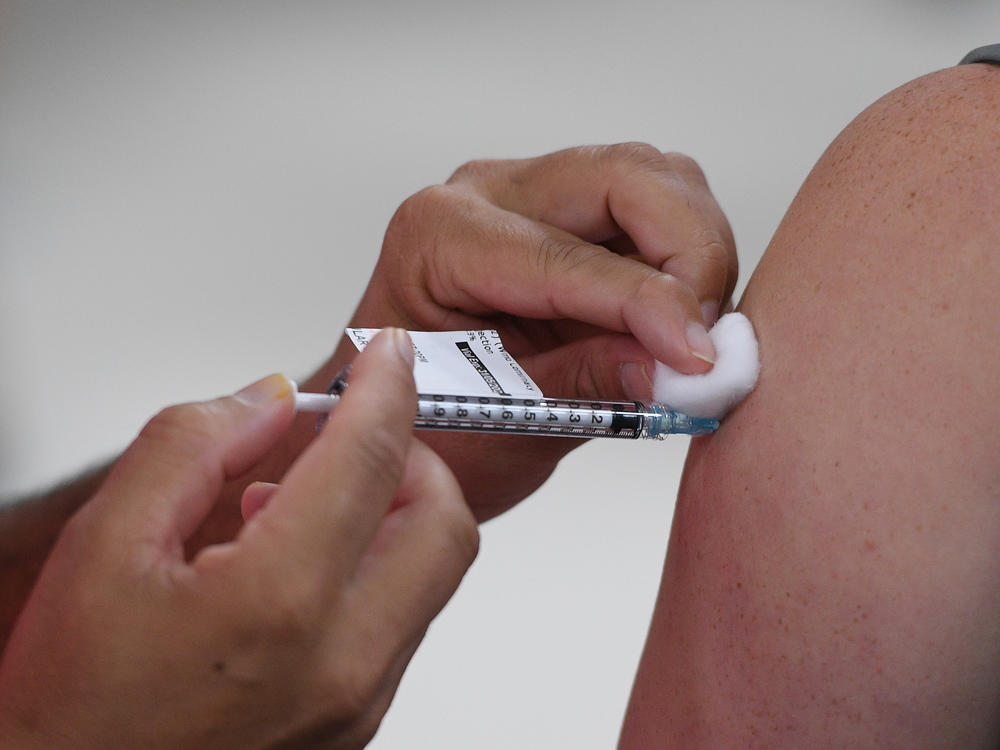Section Branding
Header Content
Australia Asks European Commission To Review Italy's Block On Vaccine Shipments
Primary Content
Australia has asked the European Commission to review Italy's decision to block a shipment of Oxford-AstraZeneca COVID-19 vaccines to the Pacific Island nation this week.
Earlier this week, Italian authorities requested the European Commission block a shipment of 250,700 doses of the vaccine destined for Australia from Europe. AstraZeneca has failed to meet European Union supply commitments.
Italy argued Australia was not a "vulnerable" nation and should not qualify to receive such a shipment. Italy's leaders also cited the ongoing shortage of vaccines in the EU as the reason for requesting the body block the export.
Australian Prime Minister Scott Morrison said during a press conference that Italian authorities had the right to try and block the vaccine shipments to Australia, and he acknowledged Italy is dealing with far higher cases of coronavirus than Australia is.
Italy reports more than 2.9 million confirmed coronavirus cases, according to Johns Hopkins University's COVID-19 tracking project. Australia reported 90 active cases of COVID-19.
"I can certainly understand the high level of anxiety that would exist in Italy and in many countries across Europe, as is regularly conveyed to me," Morrison said. "And so they have some real difficulties there. They are in an unbridled crisis situation. That is not the situation in Australia."
This was the first vaccine shipment intervention since the EU approved rules that could limit the transport of vaccines outside of member nations. The commission approved COVID-19 vaccine export regulations inside the EU to try to protect its supplies.
Morrison reassured Australians that the country's immunization program wouldn't be effected by the shipment blockade.
"We have been able to secure our supplies, and additional supplies for importation, both with Pfizer and AstraZeneca, which means we can continue the rollout of our program," he said. "This particular shipment was not one we'd counted on for the rollout, and so we will continue unabated."
Vaccine nationalism
The EU's vaccine export regulations have been criticized as promoting "vaccine nationalism" to the detriment of global pandemic recovery.
The new Director General of the World Trade Organization, Ngozi Okonjo-Iweala told NPR, "when people think of vaccines, when they think of therapeutics and diagnostics, these are also traded goods. And to the extent that countries, WTO members, have export restrictions or even prohibitions on the exports of these goods, this helps hold back the recovery. "
Okonjo-Iweala said getting countries to drop export restrictions on vaccines and medical supplies needed to fight the coronavirus pandemic will be one of her top priorities.
Morrison, though, defended Italy and the EU from those accusations in this case.
"It's fair to say the European Union has seen a large amount of vaccines leave the European Union, so it would be unfair to suggest that they've engaged in a universal practice of that nature," he said.
Copyright 2021 NPR. To see more, visit https://www.npr.org.

